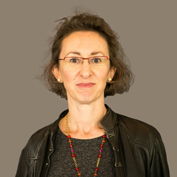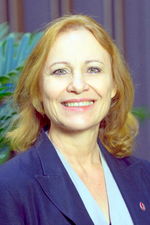Associate Members at Other Universities
Dr. Daniel P. Aldrich
Northeastern University, Boston, USA

Dr. Daniel P. Aldrich is Director of the Security and Resilience Studies Program and Professor in political science and public policy at Northeastern University in Boston. Aldrich has published five books, more than 50 peer-reviewed articles, and written op-eds for the New York Times, CNN, and many other media outlets.
He has spent more than 5 years in India, Japan, and Africa carrying out fieldwork and his work has been funded by the Fulbright Foundation, the Abe Foundation, and the Japan Foundation, among other institutions. He Tweets at @danielpaldrich.
Dr. Jennifer Aston
Northumbria University, UK

Jennifer Aston is Senior Lecturer in History and Director of the Institute of Humanities at Northumbria University, UK. She joined Northumbria University in 2017, having previously held the EHS Eileen Power Research Fellowship at the Institute of Historical Research and research positions at the universities of Oxford and Hull. She has several articles on female property and business ownership and is the author of Female Entrepreneurship in Nineteenth-Century England: Engagement in the Urban Economy (Palgrave Macmillan, 2016), and co-editor of Women and the Land 1500–1900 (Boydell and Brewer, 2019) and Female Entrepreneurs in the Long Nineteenth Century: A Global Perspective (Palgrave Macmillan, 2020). Together with Dr. Catherine Bishop and Prof. Lucy Taksa (both Macquarie University, Sydney), she is a co-founder of ReWOMEN (Researching Women of Management and Enterprise Network).
Her research interests include gender and small business ownership, bankruptcy, and the law and she has recently begun a new research project using previously unexamined petitions heard before the Court for Divorce and Matrimonial Causes to explore divorce in England and Wales, c.1857–1923.
Dr Sanil Badami
University of Technology, Sydney

Sunil Badami has taught for over 20 years now — from TESOL/TOEFL (teaching English as a second language) to creative writing and creative reading, film studies and podcast production, digital literacies and on the future of work at the University of Technology, Sydney, where he's also a member of the School of Communications’ Industry Advisory Board. He's written on the Future of Education and continue to consult to educators and policy makers on meaningful education strategies and innovative pedagogical approaches. In addition, he's also written on the Future of Work and consult to organisations and corporations on positive work culture, diversity and inclusion.
Professor Greg Bamber
Monash Business School, Monash University

Greg J. Bamber is a Professor, Department of Management and Co-Director, International Consortium for Research in Employment & Work, Monash Business School, Monash University, Melbourne, Australia. He has more than 200 publications, in leading journals and books such as: International & Comparative Employment Relations and Up in the Air: How Airlines Can Improve Performance by Engaging their Employees. He has co-led many projects funded by grants, including from Australian Research Council and international equivalents in: aviation; hospitals; manufacturing; telecommunications; outsourcing; dispute settlement; workplace change and unions. He has conducted projects with the International Labour Organisation, has advised governments and served as a non-executive director on boards. He is Co-Chair: International Section, US Labor & Employment Relations Association (LERA) and Vice President, Australian Labour & Employment Relations Association. He is a Fellow of several organisations including: LERA; Academy of Social Sciences, UK; Academy of Social Sciences of Australia; Australian HR Institute; British Academy of Management; Chartered Institute of Personnel & Development, UK; Australian & New Zealand Academy of Management (ANZAM). He has served as President of: ANZAM, Association of Industrial Relations Academics of Australia & New Zealand. He is Visiting Professor, Newcastle University, UK, has had leadership roles at several universities and visiting positions at various universities including: Harvard; MIT; Cardiff; Durham; Macquarie; Melbourne and UNSW Sydney.
Professor Santina Bertone
Management, Marketing & Tourism, Central Queensland University (Melbourne)

Santina is Professor of Management and Head of Management, Marketing & Tourism department at Central Queensland University (Melbourne). She has held various leadership roles such as Associate Dean (Research) at Victoria University and Swinburne University of Technology. More recently she was Chair of the Department of Leadership and Management at Swinburne for three years. Santina has won and managed 54 research grants totalling $1.76 million, including ARCs, and published on immigrant women, industrial restructuring, immigrants and trade unions and managing diversity (121 publications). She has also supervised nine masters and doctoral students to completion and is currently supervising eight other higher degree research students.
She was a longstanding executive member of the Ethnic Communities Council of Victoria, and has had other community and government board roles. Santina was awarded the Centenary of Federation Medal in 2008, and participated in the Australia 2020 Summit. She was recently given an ANZAM best reviewer award (2017 — diversity, indigeneity and inclusion). Her current research focuses on skilled immigrants and career progress, expatriate spouse adjustment, diversity management models and changes in higher degree research policy.
A/Professor Nathalie Bitbol-Saba
Paris School of Business, France

Nathalie Bitbol-Saba is an Associate Professor at Paris School of Business, France. She holds a PhD in Management Sciences from Paris-Descartes University. She spent 20 years as a Financial Controller and a Chief Financial Executive in a large electronics group and also worked in the public media sector. She currently teaches Corporate Finance and Organisational Management.
Her current research focuses on: working women in professionals service firms; female leaders and entrepreneurs; corporate boards’diversity.
Dr Lakshmi Bose
UNSW Sydney

Dr Lakshmi Bose completed her PhD in Human Resource Management (HRM) and Organisational Behaviour in 2018 at the School of Management, UNSW Sydney, and is currently working as a sessional academic at UNSW Sydney and Macquarie University. The title of her PhD thesis is ‘The Career Hopscotch: Understanding the relationship between knowledge, competencies, skill acquisition and voluntary turnover’. Previously she completed a Master of Commerce (Hons) in HRM, also at UNSW Sydney, on: ‘Job-insecurity, work-family balance and workers’ health: an empirical investigation into the consequences of downsizing’.
Her research focuses on employees’ skill acquisition and turnover in the context of rapid and dispersed innovation. She is also interested in employer-provided training and its relationship with employee mobility. She has presented her research at international conferences including ANZAM and the Academy of Management.
Professor Bradley Bowden
Griffith Business School, Griffith University

Bradley Bowden is a management historian and the immediate Past Chair of the Management History Division of the (American) Academy of Management. On two occasions (2009 and 2011), he has received the Management History Division’s John F. Mee Award, the Division’s highest award, for Outstanding Contribution to Management History. He is also currently Editor-in-Chief of the Journal of Management History,a journal with an A ranking on the current Australian Council of Business Deans List. Employed as Professor of Employment Relations at Griffith University, his most recent book is Work, Wealth and Postmodernism: The Intellectual Conflict at the Heart of Business Endeavour (New York: Palgrave Macmillan). He is also currently the lead Editor in the Palgrave Macmillan Handbook on Management History, a series of books that will trace the evolution of management since Pre-Hellenic times.
Professor Emeritus Julienne Brabet
Université Paris Est Créteil, France

Julienne Brabet is Professor Emeritus of Management at Université Paris Est Créteil. She is a member of the scholarly association RIODD’s (International Network of Research on Organisations and Sustainable Development) board and scientific committee, and Vice-President of the SFM (Société Française de Management). She is recognised as an Honorary Fellow of EURAM (European Academy of Management) where she co-founded the Business for Society Strategic Interest Group. Her researches are focused on the links between technological changes, globalisation, governance, strategic and organisational logics and the modes of workers’ management. Her former publications have been instrumental in structuring the French management research debate on paradigms, in particular in the field of HRM (Repenser la GRH, 1993, Paris, Economica). In her latest research, she analyses the role of digitalisation in transforming work and the academic world.
Dr Chantel Carr
School of Geography and Sustainable Communities, University of Wollongong

Chantel Carr is a lecturer in the School of Geography and Sustainable Communities at the University of Wollongong. Her research seeks to understand how working lives are being impacted by environmental change. Current projects focus on industrial work, skilled trades, repair and maintenance, and household labour. Chantel holds postgraduate degrees in architecture and planning, and worked professionally for 20 years prior to gaining a PhD in human geography. Her ethnographic research is driven by an interest in what skills might be needed, adapted or resurrected on order to meet the emergent challenges of limited resources and more volatile environmental conditions.
A/Professor Zhiming Cheng
Social Policy Research Centre/Centre for Social Research in Health, UNSW Sydney

Zhiming Cheng is an Associate Professor of Economics and Scientia Fellow in the Social Policy Research Centre/Centre for Social Research in Health at the University of New South Wales (UNSW), Sydney, Australia. He has published widely in labour economics, industrial relations and happiness with a focus on disadvantaged populations in China and Australia.
Prior to joining UNSW, he worked in the Centre for the Health Economy and Department of Management at Macquarie University and School of Economics at the University of Wollongong. He held the Jacob Wertheim Fellowship for the Betterment of Industrial Relationships at Harvard University and Research Fellowship at the Bank of Finland.
Professor Chris Gibson
Human Geography, University of Wollongong

Chris Gibson FASSA is Professor of Human Geography and Executive Director of the Global Challenges Program at the University of Wollongong, Australia. His research addresses questions of regional economic and cultural change, material inheritances, and grassroots capacities to cope with uncertain futures. Chris has published over 100 academic papers and 10 books on diverse topics — from the social and economic contributions of festivals to regional communities, to the history and geography of work in music, surfboard-making and guitar manufacturing industries. From 2010–2013, Chris was an inaugural ARC Future Fellow, and in 2013 was the lead international expert contributor to the UN Creative Economy Report. He is currently Editor-in-Chief of the academic journal, Australian Geographer.
Dr Marianne Gloet
Faculty of Business and Economics, University of Melbourne

Marianne Gloet is a Research Associate in the Centre for Workplace Leadership at the University of Melbourne and Lecturer in the Department of Management and Marketing and the Department of Mechanical Engineering at the University of Melbourne. Marianne has over 30 years of experience as an educator, researcher and senior academic manager in higher education institutions, including RMIT University (in Melbourne, Hong Kong and Kuala Lumpur). In the United Arab Emirates, Marianne held the Chair of Business at the Abu Dhabi Women’s College. Marianne’s PhD from The University of Melbourne examined the relationship between knowledge management and innovation performance in service sector organisations. Her works on harnessing the potential of knowledge and intellectual capital to improve innovation performance are widely cited in academic journals and research theses. She has lived and worked in Canada, the USA, Malaysia, Singapore, the United Arab Emirates, Hong Kong and Vietnam. Along with Professor Danny Samson, Marianne co-authored Entrepreneurship and Innovation: Creating New Value (Oxford University Press, 2016) and Innovation: The New Imperative, a report on research conducted in conjunction with the Australian Institute of Management involving over 2,400 Australian managers. Marianne’s most recent book with Dr. Yvette Blount from Macquarie University, Anywhere Working and the New Era of Telecommuting, was published in January 2017.
Dr Elise Goiseau
La Rochelle Business School

Dr Goiseau completed her cotutelle PhD at Macquarie University in Australia and Paris Dauphine University in France under the supervision of Professor Lucy Taksa and Professor Jean-Francois Chanlat respectively. The titles of her theses are as follows: 'Expatriates’ adjustment in Australia: A cultural sensemaking perspective' and 'L’ajustement des expatriés en Australie : enquête sur la construction culturelle de sens Les cas des expatriés américains et français auditeurs financiers et universitaires'. She graduated in both countries in 2020.
Her research focusses on cultural interaction. Her PhD examined the cultural adaptation of French and American financial auditors and research-active Faculty in Australia, using the concept of Cultural Sensemaking. More generally, she is interested in the concept of otherness within organisations. She uses qualitative methods and an interpretative paradigm.
She has taught at Paris-Dauphine, Macquarie, Polytechnique and EM Normandie Universities in the following subjects: Organisational Behaviour, Human Resources Management, Cross-Cultural Management, Organisational Theory and Strategic Management.
She is currently Assistant Professor in the HR and Management Teaching Department of Excelia Business School in La Rochelle, France.
Professor Charmine Härtel
Distinguished Professor and Strategic Advisor to Head of Department of Management at Monash University

Charmine E. J. Härtel is Full Professor and Chair of Inclusive Organisational Leadership and Employment for The University of Queensland Business School in Brisbane, Australia, and Co-Director (with Associate Prof. Anna Krzeminska) of the Queensland Neurodiversity Hub. She and her multidisciplinary research team are widely recognised as being at the forefront of translating social science into strengths-oriented work processes, inclusive leadership approaches, and organisational systems and practices that promote meaningful work, employee wellbeing, and sustainable organisations.
The high social impact of her translational research is evidenced by numerous international awards, including 5 awards for innovation in organisational practice. Together with Associate Professor Anna Krzeminska, she is currently undertaking research aimed at uncovering new knowledge about how context constrains or enables sustainable employment opportunities and inclusion of stigmatised groups and un(der)employed subpopulations such as autistic individuals, migrants, and refugees.
Professor Härtel is an acknowledged preeminent scholar-practitioner in her field, evidenced by election as a Fellow of the Australian Academy of Social Sciences (ASSA), the (U.S.) Society for Industrial and Organizational Psychology (SIOP), the Australian and New Zealand Academy of Management (ANZAM), the Australian Human Resources Institute (AHRI), Queensland Australia Academy of Social Sciences (QASSA), and Society for Organisational Behaviour in Australia (SOBA). Her awards include the Australian Psychological Society’s Elton Mayo Award for scholarly excellence, the Martin E. P. Seligman Applied Research Award, and 16 best paper awards. She is recipient of over AUD 3.3 million in Australian Research Council (ARC) grants and AUD 1.3 million for commissioned research. Her research appears in over 200 publications, including leading journals such as Academy of Management Review, Journal of Applied Psychology, Leadership Quarterly, Human Relations, British Journal of Industrial Relations, and Journal of Management.
Dr Burçin Hatipoğlu
School of Business, UNSW Canberra; Industrial Relations Research Centre (IRRC), UNSW Sydney

Burçin Kalabay Hatipoğlu holds a PhD in Human Resource Management (UNSW Sydney, 2011). Since 2008, she is full-time faculty at Boğaziçi University, Istanbul. She was a research fellow at the Institute for Advanced Studies on Science, Technology and Society Graz Technical University, during October 2018–February 2019. In the last ten years, Dr. Hatipoğlu has been involved in several sustainable development projects, consulted industry organisations and published various articles on employee participation, education for sustainability, and sustainable development. Currently, she is a visiting fellow at School of Business, UNSW Canberra, and Industrial Relations Research Centre (IRRC), UNSW Sydney.
Professor Steven High
Centre for Oral History and Digital Storytelling (COHDS), Concordia University

Dr Steven High is professor of history at Concordia University where he founded the Centre for Oral History and Digital Storytelling. He is the author of numerous books including Industrial Sunset: The Making of North America's Rust Belt, Corporate Wasteland: The Landscape and Memory of Deindustrialization, and (co-edited with Lachlan MacKinnon and Andrew Perchard) The Deindustrialized World: Confronting Ruination in Postindustrial Places.
A/Professor Sarah Kaine
Future of Work, Organising and Enterprises; Centre for Business and Social Innovation (CBSI), University of Technology Sydney

A/Prof Sarah Kaine completed a PhD at the University of Sydney and is currently Research Director: Future of Work, Organising and Enterprise in the Centre for Business and Social Innovation (UTS Business School). Sarah is active on a number of boards. She is a founding Director of the McKell Institute, a member of the advisory group for the Centre for Future Work, and a member of UTS Council. Sarah is interested in: innovation in employment relations and regulation — beyond the bounds of traditional labour law; Corporate Social Responsibility and its link to industrial relations, and; the regulation of labour standards in domestic and international supply chains. Specifically, Sarah has explored possibilities for regulatory alternatives in a number of industrial contexts, including publicly funded care service provision and in privately controlled road transport. Her current research explores multi-stakeholder regulation of domestic and international supply chains, and work in, and regulation of, the digitally enabled economy. Sarah frequently appears in the media commenting on industrial relations issues — particularly emerging issues in the gig economy — and is frequently requested to speak in a variety of forums on these issues (including government inquiries and industry association conferences). Sarah’s research has appeared in journals such as Human Relations, Journal of Business Ethics, Economic and Industrial Democracy, Human Resource Management Journal, Australian Journal of Labour Law and the Journal of Industrial Relations. Prior to becoming an academic, Sarah worked as an industrial relations practitioner and a consultant to not-for-profit organisations.
Dr. Ron Kerr
Senior Lecturer, University of Edinburgh Business School

Ron Kerr is a Senior Lecturer at the University of Edinburgh Business School. He holds a PhD in Critical Discourse Analysis from Lancaster University. From 1994 until 2003, he worked in the field of international development as an education project manager in China, Ukraine and Russia, and before that as a teacher developer in Sudan, Zimbabwe, Egypt and Tunisia.
His current research focuses on: organisations, architecture and space; wine as a field of cultural production; and women as political leaders.
Asst. Professor Pierre Labardin
Paris-Dauphine University

Dr Pierre Labardin is Assistant Professor in Accounting at the Paris-Dauphine University in Paris. His research focuses on accounting history, specifically accounting organisation in history, and the impact of accounting historical valuation in accounting practices. His work has been published in Accounting Business and Financial History, Accounting History Review, Accounting History, Management & Organizational History. In addition, besides numerous book chapters, he co-authored Histoire du management (Nathan, Paris) with Professor Anne Pezet, Department of Management, HEC Montréal — École des Hautes Études commerciales), in 2014.
A/Professor Lihua Liu
Preventive Medicine, Keck School of Medicine, University of Southern California

Lihua Liu, PhD is Associate Professor of Preventive Medicine at Keck School of Medicine, University of Southern California (USC), and of Spatial Sciences with the Spatial Sciences Institute at the USC Dornsife College of Letters, Arts and Sciences. She serves as Director of Data Utilization at the Los Angeles Cancer Surveillance Program, and is the founder and co-director of the USC Immigrant Health Initiative.
Trained in Demography and Medical Sociology, Dr. Liu has been conducting research that integrates the sociodemographic factors into the legally mandated cancer surveillance data to describe and reveal the disparities in cancer risk patterns and trends among the racially/ethnically and socioeconomically diverse populations in the United States. She also participates and coordinates various projects organised by the International Agency for Research on Cancer (IARC) and the International Association of Cancer Registries (IACR). Being an immigrant herself, Dr. Liu has paid special attention to the changing disease risks among immigrant Americans and the implications of lifestyle changes on the health of immigrants. Her growing interest in immigrant health will focus on understanding the spatial distribution and cultural influences of immigrant communities on health outcomes.
She publishes in high-impact peer-reviewed journals, such as Journal of the National Cancer Institute, International Journal of Cancer, and Journal of Immigrant and Minority Health.
Professor Steven Melnyk
Michigan State University

Steven A. Melnyk (Ph.D., Western — 1981) is Professor of Supply Chain Management at Michigan State University. He has co-authored 21 books, over 100 refereed journal articles and numerous practitioner articles. His research focus includes supply chain risk and resilience, strategic supply chain management, supply chain cyber security, and certified management standards. Dr. Melnyk sits on the editorial review board for numerous journals, including the Journal of Business Logistics, the International Journal of Production Research, and the International Journal of Operations and Production Management. From 2014 to 2016, Dr. Melnyk was a member of the APICS Board of Directors. From 2017 to 2019, Dr. Melnyk had a joint appointment from the University of Newcastle (Australia) where he was the Newcastle Global Innovation Chair in Supply Chain Management. In 2017, the Academy of Management — the Operations and Supply Chain Division — recognized Dr. Melnyk as a Distinguished Scholar in the field. Dr. Melnyk is recognized for this ability to bridge the gap between theory and practice. In 2018, Dr. Melnyk received the Withrow Teacher-Scholar Award from the Eli Broad School of Business, Michigan State University, in recognition of his work as both a researcher and a teacher. His recent work has included a study for the Department of the Navy addressing the question of how good a customer was the Navy and a study for the National Defense Industry Association regarding supply chain cybersecurity.
Professor Eddy Ng
Smith Professor of Equity and Inclusion in Business at Queen’s University, Canada

Eddy Ng is the Smith Professor of Equity and Inclusion in Business at Queen’s University, Canada. Prior to that, he was the James and Elizabeth Freeman Chair in Management at Bucknell University, and the F.C. Manning Chair in Economics and Business at Dalhousie University. His research centers on managing diversity for organizational competitiveness, the future of work, and managing across generations. He has particular expertise on employment equity in Canada. His current research is on global diversity and inclusion indices, east-west implicit bias, and senior leaders’ commitment to diversity. He has conducted research in workplace settings in Canada and the US, in banking and financial services, healthcare, and Financial Post 500 companies, and with CEOs and Senior HR Professionals. In 2019, his research team along with the Canadian Centre for Diversity and Inclusion completed the first national study on diversity and inclusion in Canadian workplaces.
Professor Gail Pacheco
NZ Work Research Institute, Auckland University of Technology

Gail Pacheco is a Professor of Economics and Director of the NZ Work Research Institute at Auckland University of Technology. She has considerable experience leading large-scale funded projects involving diverse stakeholder groups — in particular, collaborations across the academic and public sector, as well as practitioners in business and the community more broadly. In 2018, Professor Pacheco was awarded the NZIER Economics Award for outstanding contributions to the advancement of economics and its applications to New Zealand. She has also recently been appointed as Commissioner to the NZ Productivity Commission Board.
Professor Andrew Perchard
Newcastle Business School, Northumbria University, Newcastle, UK

Andrew Perchard is Professor of Industry & Society at Newcastle Business School, Northumbria University UK. He holds a PhD in History from the University of Strathclyde (2005) and has worked at the Universities of the Highlands and Islands, Strathclyde, Coventry, and Stirling. Prior to Northumbria, he was research director at the University of Wolverhampton Business School. Before becoming an academic, he was Head of Energy Supply Policy for the Scottish Executive (now Scottish Government).
His research is chiefly concerned with the impact of industrialisation and deindustrialisation on society, exploring more specifically aspects such as business-government relations and corporate political activity, industrial organisation and culture, industrial politics, the legacies of industrial closures, occupational and environmental health, and workplace culture and identity. He is the author of a number of monographs and books, and has published in leading historical and management journals. He is an editor of History Workshop Journal, and has held grants from the Arts and Humanities Research Council (AHRC), British Academy, Economic and Social Research Council, the Economic History Society, the Royal Economics Society and Royal Society of Edinburgh.
Dr. Sarah Robinson
Human Resource Management and Organisational Behaviour, University of Glasgow

Sarah Robinson is Reader in Human Resource Management and Organisational Behaviour at the University of Glasgow. Her research interests relate to learning in its many forms, both personal and organisational and applications of Pierre Bourdieu’s work to organisation studies. Projects include: the learning, socialisation and resistance of early career professionals during times of radical change (ECRs in Business Schools); workplace identity and concepts of place (everyday experiences of Brexit in Organisations); communities of practice within a new field (English wine industry); the genesis of women as political leaders in Scotland and their representation; and the development and organisation and political space.
She has published in a broad range of journals including Human Relations, Organization Studies, British Journal of Management and International Small Business Journal. Sarah is currently Co-Editor of the European Management Journal and Associate Editor of Management Learning.
Professor Tania Saba
School of Industrial Relations, Université de Montréal

Tania Saba is a Full Professor at the School of Industrial Relations at the Université de Montréal. She has founded and holds the BMO Chair in Diversity and Governance. She teaches and conducts research on managing diversity, intergenerational relations, knowledge transfer and employment relations transformations. She has published extensively and presented her work at international academic and professional conferences. Her publications were awarded on many occasions (citation in ‘Nature’, ‘Citation of Excellence Award’ and the ‘Verity International’ recognition). She is member of CRIMT (Interuniversity Research Centre on Globalization and Work) and CERIUM (Montreal Centre for International Studies). Her book entitled Human Resources Management: Trends, Issues and Current Practices is in its 6th edition and is cited as reference work in Quebec and for francophones in Canada.
In addition to her professorial career, Tania Saba has held academic leadership positions at the Université de Montréal; first female Chair of the School of Industrial Relations (2008–2010); Associate Dean of Undergraduate Studies (2010–2012) and Associate Dean of Graduate Studies and External Affairs at the Faculty of Arts and Sciences (2012–2015). She acted as Dean of the Faculty of Arts and Science (2015–2017).
Professor Marian Simms
Institute for Governance and Policy Analysis, University of Canberra

Professor Marian Simms is internationally prominent for her work in the fields of gender studies and political science, ethics governance and Indigenous research policy. She has held senior academic and administrative roles in Australia and New Zealand and has long-standing interests in research culture and governance in New Zealand, Sweden, South Africa and Australia. She is a former president of the Australasian Political Studies Association (APSA), a former editor of the Association's journal, and has published prodigiously. From 2011 to 2017 she was Executive Director for Social, Behavioural and Economic Sciences at the Australian Research Council.
Professor Emeritus Glenda Strachan
Griffith University
Glenda Strachan’s research focuses on women and work, especially gender equity within organisations. Her research is both contemporary and historical. Contemporary research focuses on equal opportunity /managing diversity programs within organisations. She has taught courses in industrial relations and human resource management at under-graduate and post-graduate levels and successfully supervised honours, masters and PhD theses. At both Griffith University and the University of Newcastle she has occupied senior management positions within the business schools.
A/Professor Betina Szkudlarek
International Business, School of Business, Sydney University

Betina Szkudlarek is an Associate Professor in Management at The University of Sydney Business School. Betina's core research interests lie at the intersection of global mobility, cross-cultural management, international HRM, and management of diversity. Her work has been published in top-tier international journals such as Organization Studies, Human Resource Management and Journal of Business Ethics. She currently holds a competitive Social Science and Humanities Research Council of Canada Grant for a research project titled 'Integrating refugees in the workforce - the role of host country social support'.
Betina is a regular contributor to public debate on topical issues linked to global mobility, management of diversity and cross-cultural management. Her opinion pieces have been featured by the Wall Street Journal, Sydney Morning Herald, and the Australian among others.
Professor Massimiliano Tani
School of Business, UNSW Canberra

Massimiliano Tani is Professor of Finance at the School of Business, UNSW Canberra. He carries out applied research with an economic angle and business/policy implications, mostly related to how knowledge forms and what actions enhance it, as well as more traditional analyses about the labour market including employment choices facing migrants, rural-urban migration in China, the labour market for graduates, employment and subjective well-being, and depression pointers among students in medicine and law. He teaches macroeconomics as well as finance at both undergraduate and graduate level in face-to-face and distance mode. He holds a PhD in Economics from the Australian National University (Canberra, Australia), a MSc Econ from the LSE and Laurea from Bocconi University (Milan, Italy). Before moving to Australia in 1999, he worked in investment banking in the UK.
Asst. Professor Chinmay Tumbe
Economics, Indian Institute of Management, Ahmedabad

Chinmay Tumbe is faculty member in the Economics Area of the Indian Institute of Management, Ahmedabad, and the 2018 Alfred D. Chandler Jr. International Visiting Scholar in Business History at Harvard Business School. He works on migration, cities, firms and history. An alumnus of the London School of Economics and Political Science and the Indian Institute of Management, Bangalore, he has been a faculty member at the Tata Institute of Social Sciences, Hyderabad, and was the 2013 Jean Monnet Fellow at the Migration Policy Centre, European University Institute, Florence, Italy. He has published widely on migration for a decade and has served on policymaking groups. India Moving is his first book.
Dr. Joana Vassilopoulou
Brunel Business School, Brunel University London; Rotterdam School of Management, Erasmus University

Dr Vassilopoulou is a Senior Lecturer in HRM at Brunel Business School, Brunel University London, UK and at the Erasmus Centre for Women and Organisations, Rotterdam School of Management, Erasmus University, Netherlands. Her research focuses on race and gender equality at work, highly skilled migrants, migration, diversity management and talent management, from a critical and international comparative perspective. Joana has an established academic and professional record in the field of diversity and inclusion and is also collaborating with the European Network against Racism (ENAR), Brussels/Belgium. She is an Editor of the Xenophobia Monitor at the European Management Review (EMR) and has published in edited collections and journals such as the European Journal of Industrial Relations, International Business Review and the International Journal of Human Resource Management. She was a recipient of a visiting scholarship at Sydney University’s business school (2017) and winner of the Transnational Best Paper Award at the American Academy of Management conference (2012). She has a PhD in Management from Norwich Business School, University of East Anglia and her Sociology diploma from the University Duisburg-Essen, Germany.
Asst. Professor Natalya Vinokurova
Wharton School, University of Pennsylvania

Natalya Vinokurova is an Assistant Professor of Management at the Wharton School of the University of Pennsylvania. She graduated cum laude from Harvard College, where she studied psychology, and she received her MPhil and PhD in Business Administration from the NYU Stern School. Her dissertation won the first prize from the Industry Studies Association, an honourable mention for the Grigor McLelland Award from the Society for the Advancement of Management Studies, and was a finalist for the Wiley-Blackwell Outstanding Dissertation Award from the Academy of Management. Professor Vinokurova’s research focuses on the evolution of decision-making processes in fragmented systems at the intersection of the domains of business history and strategy. Her research has been published in top academic journals, including Business History, Enterprise and Society, Organization Science, and Strategic Management Journal. She has received numerous scholarly awards, including the Philip B. Scranton Prize for Best Article in Enterprise and Society, and Most Novel Research Award from the Behavioral Strategy Division of the Strategic Management Society. Professor Vinokurova currently serves as a reviewer for Organization Science, Strategic Entrepreneurship Journal, and Strategic Management Journal as well as a co-chair of the Emerging Scholars Committee at the Business History Conference and as a member of the New Members Committee for the Management History Division of the Academy of Management. Professor Vinokurova teaches strategy in the core MBA program and a workshop on analysing business cases for the MBA and Executive MBA students at Wharton. She received numerous teaching awards including the designation of Top 40 Business Professors under 40 by Poets and Quants, the ‘Tough but we’ll thank you in five years’ core curriculum teaching award, as well as two ‘Goes above and beyond the call of duty’ core curriculum teaching awards.
Dr Janis Wardrop
School of Management, UNSW Sydney

Janis Wardrop is an academic leader, educational change agent and commentator on management education, business ethics and governance. Her academic career has included the positions of educator, Program Director MBA(Executive) AGSM, and Deputy Head of School. Prior to joining academia, she held professional careers in investment banking, legal services and technology. Her current teaching practice encompasses Work Integrated Learning, and developing courses and programs that provide opportunities for students to enhance their career readiness competencies.
Professor Adrian Wilkinson
Centre for Work, Organisation and Wellbeing, Griffith University

Adrian Wilkinson is Professor and Director of the Centre for Work, Organisation and Wellbeing at Griffith University, Australia. He holds a Visiting Professorship at The University of Sheffield and is an Academic Fellow at the Centre for International Human Resource Management at the Judge Institute, University of Cambridge. He has been shortlisted by HR magazine for the award of HR (Most Influential International Thinker). Adrian has authored/co-authored/edited thirty books and over one hundred and fifty articles in academic journals. Adrian has served on the Australian Research Council College of Experts. He is an Academician (Fellow) of the Academy of Social Sciences in the UK as well as a Fellow of the Academy of Social Sciences in Australia. He was on the panels of both the Australian (ABDC) and UK (CABS) journal ranking exercise.
Professor Klaus Zimmermann
President, Global Labor Organization (GLO); Co-Director, POP, UNU-MERIT; Maastricht University

Prof. Dr. Klaus F. Zimmermann is President of the Global Labor Organization (GLO); Co-Director of POP at UNU-MERIT; Full Professor of Economics at Bonn University (em.); Honorary Professor, Maastricht University, Free University of Berlin and Renmin University of China, Beijing; Member, German Academy of Sciences Leopoldina, Regional Science Academy, and Academia Europaea, the European Academy of Sciences, and Chair of its Section for Economics, Business and Management Sciences. Research Fellow of the Centre for Economic Policy Research (CEPR) and Fellow of the European Economic Association (EEA). Editor-in-Chief of the Journal of Population Economics. Editorial Board of International Journal of Manpower, Research in Labor Economics and Comparative Economic Studies, among others.
Zimmermann has published 53 books, 168 papers in refereed research journals, 152 chapters in collected volumes, 11 contributions to handbooks and encyclopaedias, 113 contributions to policy journals and reports and 517 media pieces. He is committed to the diffusion of research to policy and society, writes regularly in leading international media and advises governments, the European Commission and the World Bank on labor market and migration issues.
